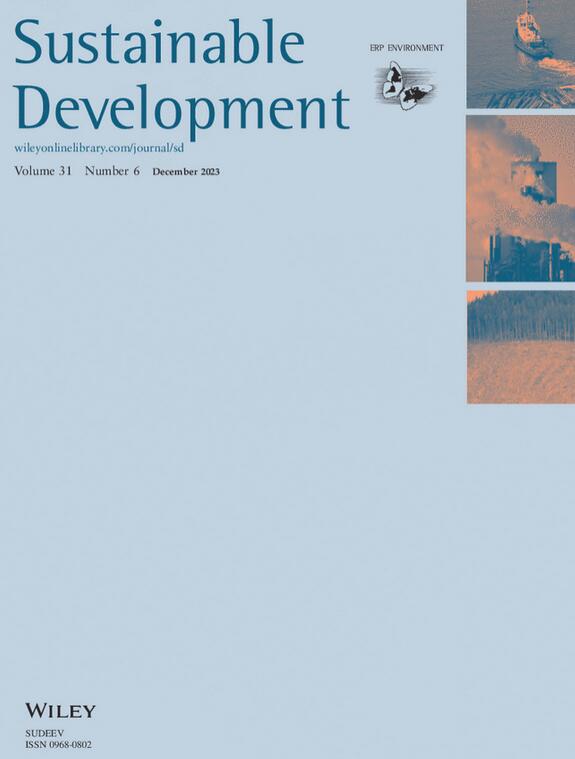可持续发展目标 12 和 14 的循环经济和废物生产模式:邮轮可持续性报告的证据
IF 9.9
1区 环境科学与生态学
Q1 DEVELOPMENT STUDIES
引用次数: 0
摘要
有关 "废物生产模式"(可持续发展目标 12)和海洋生物多样性目标(可持续发展目标 14)的实践和倡议之间的关系相对而言尚未得到探讨。为了弥补这一差距,本研究借鉴利益相关者和合法性理论,考察了邮轮上基于循环经济(CE)的废物管理实践和举措,并将可持续发展目标 12 和 14 联系起来。因此,本研究使用 Leximancer 软件(5.0 版)和人工方法对嘉年华集团公司的 2020-2022 年可持续发展报告进行了内容分析。分析结果表明,该公司为实现可持续发展目标 14,在 "废物生产模式 "的绿色技术方面做出了越来越多的承诺。然而,该公司的可持续发展报告却没有提供对海洋生物多样性影响的明确证据。研究结果表明,为实现可持续发展目标 14,从业人员应与 "废物生产模式 "绿色技术合作并进行投资。本研究不仅首次在行政首长协调会框架内探讨了两个可持续发展目标之间的联系,还推进了对 "废物生产模式 "中废物管理的深入了解,增强了对可持续实践的理解。本文章由计算机程序翻译,如有差异,请以英文原文为准。
Circular economy and waste production models for sustainable development goals 12 and 14: Evidence from cruise sustainability reporting
The relationship between the practices and initiatives governing “waste production models” (sustainable development goal [SDG]12) and marine biodiversity goals (SDG14) is relatively unexplored. Aiming to bridge this gap by drawing on stakeholder and legitimacy theories, this study examines onboard cruise ships' circular economy (CE)‐based waste management practices and initiatives, correlating SGDs 12 and 14. Consequently, Carnival Corporation Plc's 2020–2022 sustainability reports are analyzed using content analysis by both Leximancer software (ver. 5.0) and manual methods. The results highlight the corporation's increasing commitment to green technologies for “waste production models” to achieve SDG14. However, its sustainability reports provide unclear evidence of the impact on marine biodiversity. Findings implies that practitioners should partner and invest in green technologies for “waste production models” to achieve SDG14. Besides being the first to explore the link between the two SDGs within the CE framework, this study advances insights into waste management within “waste production models,” enhancing the understanding of sustainable practices.
求助全文
通过发布文献求助,成功后即可免费获取论文全文。
去求助
来源期刊

Sustainable Development
Multiple-
CiteScore
17.30
自引率
11.20%
发文量
168
期刊介绍:
Sustainable Development is a publication that takes an interdisciplinary approach to explore and propose strategies for achieving sustainable development. Our aim is to discuss and address the challenges associated with sustainable development and the Sustainable Development Goals. All submissions are subjected to a thorough review process to ensure that our readers receive valuable and original content of the highest caliber.
 求助内容:
求助内容: 应助结果提醒方式:
应助结果提醒方式:


